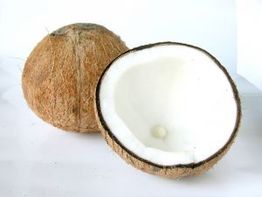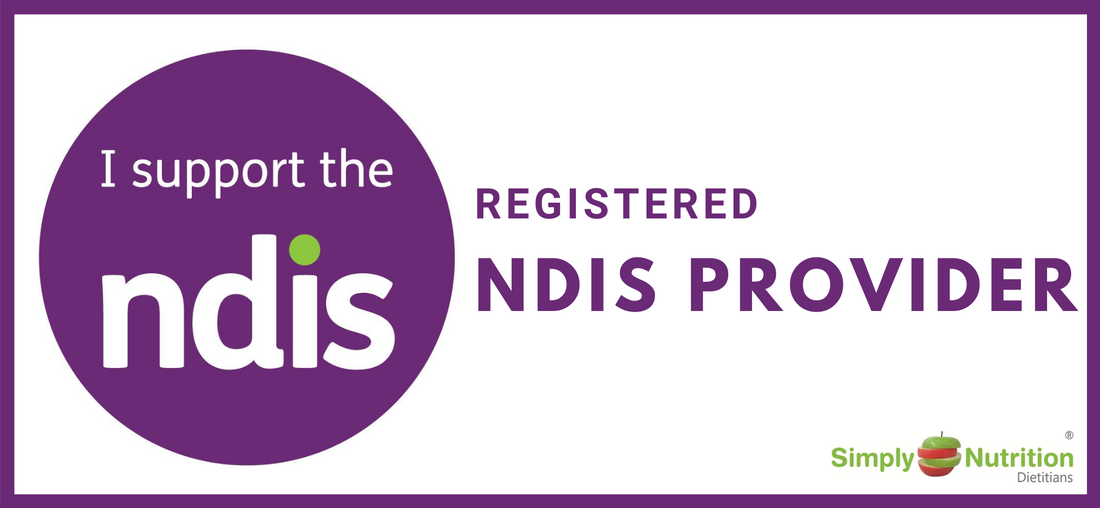|
Many people who embark on weight loss surgery have come into contact with at least one dietitian in the past and let’s face it, we aren’t on the top of anyone’s Christmas card list! So when your weight loss surgeon suggests you see yet another dietitian, you shudder at the thought! But hear me out. We play a valuable role in your weight loss journey both before and after your surgery, and I’ll show you why. By Kate Stoker, Principal at Simply Nutrition Dietitians and in-house dietitian with Dr James Askew - Bariatric Surgeon - Sunshine Coast.
These are the types of questions we’re asked every day…and many more! Our goal is to support you through the process, help you to achieve your weight loss goals, keep the weight off and to most importantly to keep you feeling well! What to Expect To help ease the anxiety often felt when you make an appointment to see us, here is what to expect from your appointments: Pre-op
Post-op
As you can see from above, our main role is to support YOU! We are not here to tell you that you’ve done the wrong thing or how badly you’ve eaten in the past. We want you to find the best way of eating to suit you and your life as well as achieving good nutrition to keep you feeling well. If you'd like assistance please feel free to reach out via phone or email. By Kate Stoker,Principal at Simply Nutrition Dietitians
0 Comments
Closed from - Saturday 19.12.15
Reopening - Monday 4.1.16 Wishing you a very Merry Christmas and a safe and happy New Year!  Individuals who suffer from arthritis can gain some relief by having a well-balanced diet. Although there is no food that can cure arthritis, some dietary modifications such as those listed below can lessen joint pain and improve a sufferer’s quality of life. Healthy eating A balanced diet rich in foods as described in “The Australian Guide to Healthy Eating” and low in total fats should become a part of an arthritic patient’s daily life. Brightly coloured fruits and vegetables; wholemeal breads and cereals, tea; dark chocolate and some herbs are all rich in Anti-Oxidants which can help prevent inflammation. Healthy weight Having too much weight can put excess pressure on hip, ankle and knee joints. A healthy eating lifestyle combined with low resistance exercise; such as swimming, walking and stationary cycling can assist a patient in getting to a healthy weight range. Omega 3 Fats Commonly found in oily fish, (EPA & DHA) and in canola oil, green leafy vegetables and flaxseed (ALA); studies have found that a high intake of omega-3 fats can have a calming effect on arthritis, specifically rheumatoid arthritis. Omega-3 fats also have the added benefit of reducing the risk of cardiovascular disease. The easiest way to obtain omega-3 is by eating at least 3 fish meals a week or through a high-strength, pure fish oil supplement. Myths Cider vinegar; Nightshade vegetables: potatoes, capsicum, eggplant and tomatoes and Acid producing foods: oranges, lemons and tomatoes have not been scientifically proven to worse arthritis symptoms and should therefore not be avoided. Glucosamine Glucosamine helps to regenerate cartilage and lubricate joints. It is extracted from the shells of prawns and shellfish and according to Arthritis Australia can be beneficial for sufferers. For more information and or help with your diet and Arthritis please call 07 54448 4459 or email us here. Additionally please visit Arthritis Australia www.arthritisaustralia.com.au Reference: 1. Arthritis Australia. Joint Action – Take Control, Food and Arthritus Almost 1 in 100 Australians are affected by coeliac disease. However, 160,000 Australians have not been correctly diagnosed. If left untreated or misdiagnosed Coeliac Disease can lead to osteoporosis, iron deficiency, infertility, depression, liver disease, miscarriages, some cancers and autoimmune diseases.
Coeliac Disease can affect people in various ways with some experiencing more severe symptoms than others. Patients who have coeliac disease commonly experience weight loss, anaemia, diarrhoea, constipation, bloating, abdominal pain and lethargy. How to diagnose Coeliac Disease? To correctly diagnose Coeliac Disease it is important for the patient to go through the following steps
Blood tests are not always accurate and therefore should never be used as a definitive diagnosis for the disease. If the serology is positive, the patient MUST continue consuming gluten and have a small bowel biopsy to confirm the diagnosis. The serology is just a screening test!
What can a Simply Nutrition Dietitian do for a patient with coeliac disease?
Further information on Coeliac Disease can be found at Coeliac Australia - www.coeliac.org.au
Great video to watch discussing the effects of the fad diets flooding society and people's eating behaviours. Let's focus on eating for health and enjoyment and stop feeling guilty....who's with us?
Simply Nutrition Dietitians has recently had a change of phone number along with a new postal address. Please find these changes below.
New phone number – 07 5448 4459 New postal address – Po Box 54 Bli Bli QLD 4560 The mobile number 0439 757 642 will still remain as a second point of contact. If you have any questions please don’t hesitate to contact us. Can not believe it's already that time of year again. It only feels like yesterday we were uploading our Christmas and New Year hours of operation for the 2013/2014 period. We would like to wish all our clients, suppliers, friends and family a very Merry Christmas and a happy and safe New Year. Our phones will be unattended over the break, however please leave a detailed message on our answering machine and we will call you when we re-open on the 5/01/2015. Ph: 07 5448 4459 Simply Nutrition Dietitians will be closing down over the Christmas and New Year break on the following dates – Closed from : Monday 22/12/2014 Re-opening on : Monday 5/1/2015 Thanks again for all your support. Kind regards, Kate, Chris, Caitlin, Danielle & Rod Merry Christmas
There has been a lot of media coverage re: the Paleo Diet of late which has meant a larger number of individuals are starting to follow it in attempt to improve their health. Unfortunately we have seen a handful of people in the last 2 months who have been following this diet and have had some adverse effects from it. Namely higher cholesterol results when previous readings were in the normal range prior to the diet, headaches and fatigue.
So with this in mind we wanted to do some Myth busting - What is the Paleo diet The Paleo diet is based on the diet of our Palaeolithic ancestors and focuses on only consuming foods that our ancestors consumed during this time. The diet is high in protein and fat and lower in carbohydrate– it allows people to consume fruits, vegetables, nuts, seeds, meat, poultry, seafood and eggs, while excluding dairy, grains, alcohol, processed foods, refined sugar, potatoes and salt. The modern Paleo diet also promotes the use of coconut oil and butter, while recommending legumes be avoided. During this period, food choices also depended on availability which supports that the diet altered between region and season, and revealing there was no one specific Paleo diet. Risks of following the Paleo diet It is not recommended that individuals follow the Paleo diet as the exclusion of grains and dairy foods places people at risk of nutrient deficiencies and at risk of chronic diseases such as osteoporosis. By encouraging people to use saturated fats such as butter and coconut oil, the diet also places followers at an increased risk of heart disease. It is great that the diet encourages more fruits and vegetables and some unsaturated fats such as avocado and nuts and encourages the avoidance of processed and refined discretionary foods. The Australian Guide to Healthy Eating also recommends this. Followers of this diet claim that our current dietary guidelines are causing us to be overweight however the recent Australian Health Survey indicates Australian’s are eating less fruits and vegetables and greater than a third of our daily dietary calories come from foods high in saturated fat and refined sugars. In addition, research also suggests that grains were consumed at some stage during the Palaeolithic era despite the diet encouraging avoidance of them. Research has demonstrated the benefits of wholegrains for managing weight and also for the digestive tract. Research also discussed the importance of dairy for bone health. Summary
We hope this helps with your knowledge and if you need further advice Simply Nutrition Dietitians are able to help with understanding the risks of following the Paleo diet, and provide healthy, balanced nutritional recommendations instead. References Dietitians Association of Australia. Part 2: The modern paleo diet: What is it? Available from: http://daa.asn.au/for-the-public/smart-eating-for-you/nutrition-a-z/paleo-diet/part-2-the-modern-paleo-diet-what-is-it/ Dietitians Association of Australia. Part 1: The paleo diet: What is it? National Health and Medical Research Council. Australian Guide to Healthy Eating. Available from: http://www.eatforhealth.gov.au/guidelines/australian-guide-healthy-eating Osteoporosis Australia. Calcium, vitamin D and osteoporosis.  Coconut Oil -Myths & Facts Coconut Oil -Myths & Facts Coconut oil is an edible oil extracted from the kernel (meat) of matured coconuts harvested from the coconut palm. Coconut oil is made up of both saturated fat (bad fats) as well as medium chain triglycerides. By consuming large amounts of saturated fat, this can put your body at risk of clogged arteries or a heart attack. In today’s society, coconut oil has become a very hot topic, however a lot of the information provided is not evidence based and is very misleading. Here are some myth busters for coconut oil! Remember : We are always skeptical when buying a vehicle from a used car salesman or a house from a real estate agent! Why not take the same approach when buying and consuming food. There’s a lot of false and misleading information out there from the people that market and sell these products.
Therefore, from this, it is evident that the negatives of coconut oil greatly outweigh any possible benefits. It is important to keep in mind, coconut oil is an important cash crop for India, the Philippines and Indonesia and unfortunately, in today’s society, wealth is often placed before health. Any information, from any human being can be presented on the Internet, however it is important to make sure it is quality evidence and from a reliable source. If you are unsure, always speak to your Dietitian or Doctor before commencing any diet strategies that have conflicting evidence. In conclusion, coconut oil should not be used more than once per month or if possible, completely avoided. References:
Hu, FB., Stampfer, MJ., Manson, JE., Ascherio, A., Colditz, GA., Speizer, FE., Hennekens, CH., & Willett, WC. (1999). Dietary saturated fats and their food sources in relation to the risk of coronary heart disease in women. American Journal of Clinical Nutrition, 70(6): 1001-8. Kabagambe, EK., Baylin, A., Siles, X., & Campos, H. (2003). Individual saturated fatty acids and nonfatal acute myocardial infarction in Costa Rica. European Journal of Clinical Nutrition, 57(11): 1447-57. Updated by Danielle McLaughlin  With so much information out in the marketplace with regards to weight loss, please be careful of potential weight loss scams. If a service or product seems too good to be true then it probably is! Click here to be re-directed to the Australian Governments "Scam Watch" website and find out how to spot a weight loss scam. |
Categories
All
Archives
October 2017
|
Ph: 1300 380 694 |
Fx: 07 3547 8449 |
Copyright © 2010-2024 - Simply Health Group t/a Simply Nutrition Dietitians & Simply Engage Occupational Therapy
Sunshine Coast | Caboolture | Brisbane | Gympie | Ipswich | Australia
Sunshine Coast | Caboolture | Brisbane | Gympie | Ipswich | Australia



 RSS Feed
RSS Feed
